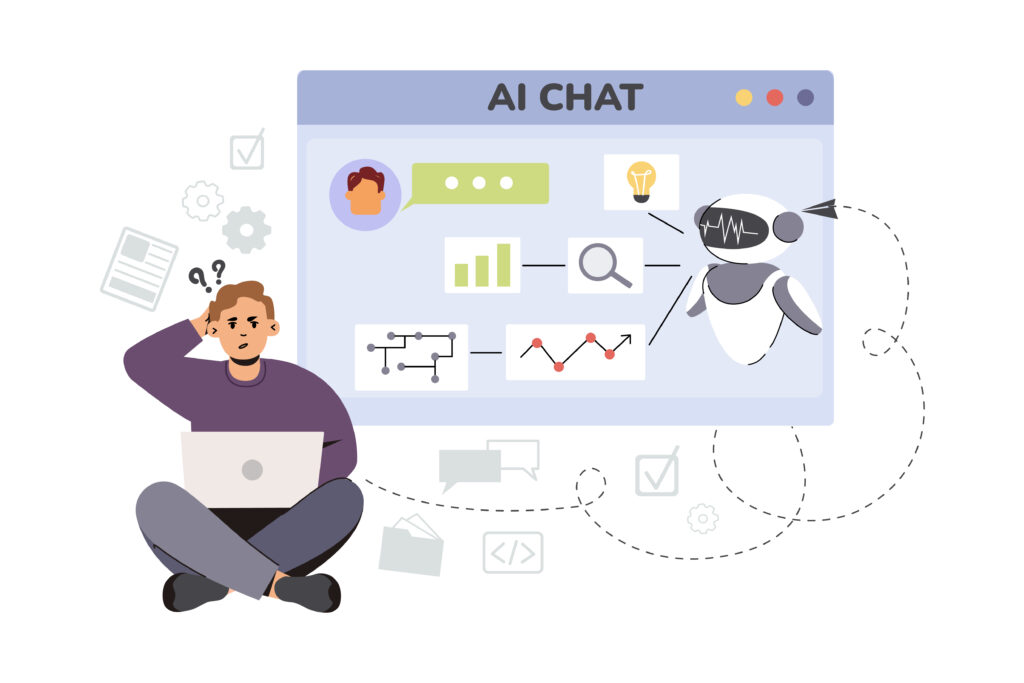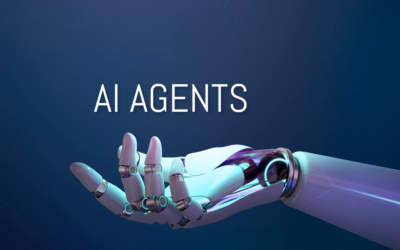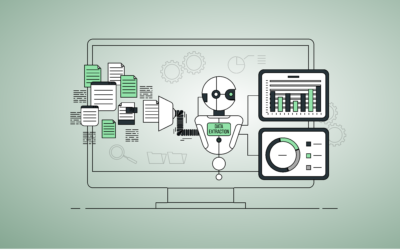Table Of Content
Integrate generative AI into business operations to build competitive strength and develop innovative business models. Generative AI strategy focuses on creating an intelligent transformation within company operations, where accumulated knowledge and experience drive continuous improvement.
Investing in generative AI offers significant competitive advantages, including cost reductions in processes and operations, accelerated learning curves, and the accrual of valuable experiential insights. This page explores how businesses can embed generative AI into their operations to fundamentally change the nature of work and significantly enhance workforce capabilities. To maximize the impact of generative AI (GenAI), organizations must adopt a holistic approach that integrates strategy, process redesign, and the combination of human and technical capabilities. This creates a robust foundation for an AI-driven organization, enabling outcomes that propel businesses forward.
Generative AI’s Impact on Business
- Revenue and Productivity: Generative AI is reshaping revenue models across all industry sectors by impacting productivity and operational costs. Its applications in functions such as customer operations, marketing, and software development transform roles and enhance performance.
- Reshape Critical Functions: Beyond everyday task automation, there is substantial value in reshaping critical business functions with generative AI. By reengineering processes and roles to leverage GenAI, companies can achieve 30% to 50% efficiency gains in areas like customer service and marketing. This transformative approach requires technological integration and a comprehensive rethinking of operational workflows and functional roles.
- Revenue and Productivity: Generative AI is reshaping revenue models across all industry sectors by impacting productivity and operational costs. Its applications in functions such as customer operations, marketing, and software development transform roles and enhance performance.
- Workforce Transformation: Adopting generative AI necessitates a workforce adept at new skills as traditional roles evolve or are augmented by AI capabilities. Organizations must focus on retraining and developing these new competencies.
Generative AI can lead to profound changes in work activities and the potential to automate up to 50% of knowledge workers’ tasks. - Strategic Implementation: Businesses should identify high-impact use cases where generative AI can solve unique business challenges and deliver measurable outcomes. Examples include enhancing customer service operations with AI-powered chatbots and supporting human agents with real-time assistance.
Leaders in AI don’t merely use the technology; they are powered by it. As generative AI democratizes access to artificial intelligence, companies without extensive data science resources can harness its power.
However, achieving leadership requires reimagining processes, fostering widespread adoption, and developing appropriate roles and governance structures. At Krasamo, our GenAI Strategy approach helps organizations pull these levers effectively, allowing them to scale up their AI initiatives and maximize value.
Organizational Readiness and Culture
Building an AI-Driven Culture: Our research shows that fully embedded AI is a hallmark of future-ready companies that excel in financial and non-financial measures. Companies can unlock substantial value by focusing an organization on AI and appropriately aligning roles, responsibilities, and culture. This involves dedicating efforts not only to algorithms and technology but predominantly to business and people transformation for a successful AI implementation.
Challenges and Considerations
- Integration with Existing Systems: One of the main challenges is the seamless integration of generative AI with existing technological infrastructures. Proper integration facilitates efficient data flow and enhances model performance.
- Ethical and Regulatory Considerations: As businesses adopt generative AI, they must navigate ethical concerns such as data privacy and algorithmic bias and comply with evolving regulatory standards.
- Implementing AI at Scale: Implementing AI at scale involves more than just overcoming technical and ethical hurdles; it requires a fundamental transformation of business processes and a deep integration of AI into the fabric of the business. This transformation is pivotal for achieving immediate AI benefits and sustaining long-term competitiveness and innovation.
In addition to these concerns, implementing AI at scale involves practical challenges that must not be underestimated. These include massive upskilling to ensure employees can effectively work with new AI tools and carefully evaluate the costs and benefits of deploying these technologies. Large-scale deployment of generative AI requires significant initial investment and ongoing adjustments to align with changing business needs and market conditions. - Innovation and Continuous Learning: The rapidly changing landscape of generative AI requires businesses to remain flexible and continuously informed about new developments to maintain competitiveness.
Operational Excellence with Generative AI
- Deploy GenAI in Everyday Tasks: Companies should integrate these technologies into everyday tasks without delay to realize generative AI’s full potential. By employing GenAI-enabled tools, such as AI copilots, employees can streamline routine activities like email management and meeting summaries. This boosts individual productivity and significantly enhances efficiency across the entire organization.
- Enhancing User Experience: Generative AI can elevate the overall user experience by improving the accuracy and personalization of customer interactions, leading to higher customer satisfaction and loyalty.
- Streamlining Operations: Generative AI can optimize various business processes, from procurement management and risk compliance to talent acquisition and organizational learning.
GenAI strategies aim to optimize the creation of AI-driven products that generate outputs and continually update and improve them based on new data. This ongoing process ensures that the products remain relevant, adaptable, and accurate.
Technical and Operational KPIs
- Building Custom AI Models: Tailoring AI models to specific business needs helps enhance performance while managing costs. Smaller, domain-specific models often perform better in latency, accuracy, and operational efficiency. This might help the company to keep control over processes and data. Learn more about Generative AI Landscape and Tech Stack.
- Data and Infrastructure: Effective generative AI strategies rely on large amounts of unstructured data, robust data streaming, and the computational power to handle large datasets and complex model training.
- Advancements in AI Chip Technology: Discuss investment options in AI chips as part of your AI strategy to ensure your systems can process large-scale tasks and support the scalability and efficiency required for enterprise-level operations.
- Operationalizing KPIs with Generative AI: As your team integrates generative AI tools into daily operations, it’s crucial to develop specific KPIs that measure task efficiency, volume, experience, and quality.
These metrics enable us to track and demonstrate the effectiveness of AI applications, showcasing tangible improvements and learning curve benefits. Systematically measuring these aspects can optimize operational processes and significantly enhance productivity. - Innovating with the Intelligence Flywheel: Implement the concept of an intelligence flywheel to measure and enhance the cyclic improvements in AI capabilities. This approach uses metrics such as user engagement and data utilization to feed continual system enhancements, driving a sustainable cycle of innovation and efficiency.
- Customized Implementation Frameworks: Introduce frameworks that align these KPIs with the organization’s strategic objectives. Custom-fit frameworks ensure that the generative AI implementation is aligned with business goals and adaptable to the organization’s unique operational realities. These frameworks facilitate the effective scaling of AI initiatives, maximizing impact and value.
Implementing a generative AI strategy requires a comprehensive approach that includes adapting business processes, investing in new skills, and continuously evaluating and refining AI applications. By embracing generative AI, organizations can improve their operational efficiencies and foster a culture of innovation and resilience against future challenges.
Responsible AI: Enhancing Performance and Building Trust
As generative AI technologies become increasingly integral to business operations, implementing these systems responsibly is not merely a regulatory compliance or risk mitigation measure—it’s a strategic advantage. Responsible AI (RAI) practices improve the performance of AI systems, foster trust among users, and facilitate broader adoption, thus generating substantial business value.
- Strategic Value of Responsible AI: By aligning AI implementations with organizational values and ethical standards, companies can ensure that their AI systems operate efficiently and ethically. This alignment helps resolve complex ethical dilemmas often associated with AI deployments, enhancing corporate reputation and customer trust. The strategic implementation of RAI creates a robust framework that supports transformative business impacts and compliance with emerging regulations.
- Operational Benefits: Incorporating responsible AI principles from the start of generative AI strategy development helps build innovative, safe, and reliable generative AI applications. This approach reduces errors, decreases bias, and prevents potential misuse, accelerating innovation and promoting differentiation in the market.
- Preparation for Regulatory Changes: With AI regulations evolving globally, early integration of responsible AI frameworks positions companies advantageously by preempting compliance requirements. This proactive stance prepares businesses for future legal standards and instills confidence among stakeholders, ensuring that AI deployments are both sustainable and legally compliant.
- Custom-fit Framework for Implementation: Frameworks tailored to each organization’s unique circumstances are essential to assist companies in navigating the complexities of RAI. These frameworks focus on operationalizing ethical AI through clear data privacy, intellectual property, and transparency guidelines, thereby minimizing the path to RAI maturity and maximizing the strategic benefits.
Building an AI Strategy
We bring together business and AI consultants from Krasamo and your organization to develop generative AI strategies focused on outcomes. Our teams can identify how generative AI and other systems can add value and build solutions. We start by identifying use cases for existing and new products or services, supporting your team throughout the AI journey.
Invent New Business Models: Generative AI offers more than incremental improvements—it opens avenues for completely reinventing customer experiences and developing new services and business models. Businesses can use GenAI to transform traditional offerings into innovative solutions that could potentially unlock hundreds of millions in new revenue streams. This requires combining technical ingenuity and strategic foresight, focusing on custom solutions that leverage unique business data and intellectual property.












